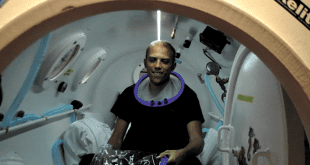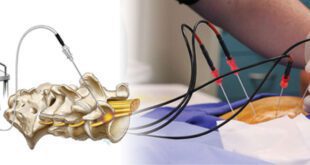By Parveen Vahora, M.D.

Menopause causes a slew of disorders and side effects, but rarely do women discuss osteoporosis because unless you are getting regular Dexa scans, it usually goes undetected until a fracture occurs. Hormonal imbalance is the primary cause of osteoporosis in women during and after menopause.
Calcium Intake
We lose calcium through our skin, nails, hair, sweat, urine, and feces every day. Our bodies cannot produce its own calcium. That’s why it’s essential to get enough calcium from the food we eat. When we don’t get the calcium our body needs, it is taken from our bones. This is fine once in a while, but bones get weak and are more prone to fractures and breaks if it happens too often.
Calcium is not a treatment for osteoporosis, but if you aren’t getting enough from your diet, the bone density will continue to deteriorate. Women should supplement with between 1,000 and 1,200 mg of calcium per day.
Hormones
Regulating hormonal imbalance with your gynecologist is a critical part of aging. Whether you need bioidentical hormonal replacement therapy, medications, topicals or transdermal patches, Gynecologist, Dr. Parveen Vahora customizes each treatment plan specific to her patient’s needs and overall health.
It’s Important to Maintain Regular Gynecological Wellness Visits
Many women think that after menopause, they no longer need to see their gynecologist, but the fact is maintaining regular gynecological visits is critical for healthy aging. Women need to have regular pap smears until the age of 65, as recommended by the current guidelines.
Women need to maintain regular wellness exams after menopause for many years to check for issues such as pelvic organ prolapse, urinary or fecal incontinence, GSM (genitourinary syndrome of menopause), and VVA (vulvovaginal atrophy).
VVA causes dryness and pain
When the regularity of a woman’s menstrual cycle ceases, the estrogen receptors decrease along with estradiol in the uterine lining, disrupting the thickness and lubrication of the tissues. Why is this significant? Estrogen increases gland secretion and blood flow to the urogenital tissues, so when our estrogen is limited or obsolete, it leads to vaginal dryness, pain, PH imbalance, and urinary changes such as overactive bladder and incontinence.
Due to the limited estrogen supply, the walls of the vagina start to thin out, causing dryness, burning, and inflammation. This can make intercourse very painful and can cause urinary disorders, interfere with daily activities, and completely disrupt your life due to the extreme pain and discomfort that it can cause.
Dr. Parveen Vahora explained, “There are many options for women, like creams, medications, and surgery, but they all pale in comparison to an innovative procedure that is not hormonal, has no side effects, and only takes a few minutes to perform right in the convenience of my office. This advanced technology is called the MonaLisa Touch®, and it’s helped countless women treat their vulvovaginal atrophy and associated symptoms and pain. Women get their confidence and sexual health back to how it was when they were younger.”
MonaLisa Touch®
No medications, no cutting, no lengthy healing times: This innovative laser therapy is for VVA. It’s quick, efficient, and can be safely performed in the comfort and privacy of Dr. Vahora’s office. The laser does not hurt or cause any pain. You will only feel slight vibrating sensations from the machine, and the best part is that the entire procedure is accomplished in an outpatient office setting.
The laser helps with the body’s cell renewal and regenerates the mucous membrane, helps with the restoration of collagen and renews the proper trophic balance to the membrane. MonaLisa Touch® is a functional vaginal rejuvenation treatment based on a unique fractional CO2 laser. This device was created specifically for the vaginal mucosa and is presently the most effective procedure for preventing and treating vaginal atrophy and its painful conditions.
Now it’s possible to have relief from vulvovaginal atrophy due to the MonaLisa Touch’s® ability to gently improve the tissue of the vulvar and vaginal mucosa. With this treatment, women no longer have symptoms of dryness, pain, itching, or irritation. Women are able to enjoy intimacy once again. The MonaLisa Touch treatment also helps urinary symptoms such as incontinence and urgency.
You and your partner will both benefit from this procedure, as intercourse will be pain-free and pleasurable once again. Mona Lisa Touch allows restoration, healing, and a renewed enjoyment of each other. You’ll be amazed at how effective this procedure gets you back to where you once were in your relationship.
To find out more, please visit ParveenVahoraMD.com or email info@ParveenVahoraMD.com.
Call today to schedule an appointment at (727) 376-1536 or during office hours, text (813) 548 4412.
New patients are welcome! Schedule your consult today.
Parveen Vahora, M.D.
Dr. Parveen Vahora’s office offers advanced and individualized care. The office is small, intimate, and welcoming. Women under her care are treated with the utmost respect, and by providing personalized care, educating patients on conditions and treatment options, and preventative measures, Dr. Vahora’s patients affirm her expertise.
Dr. Vahora specializes in sexual health and is proud to offer the MonaLisa Touch® for patients going through menopause and post-menopausal women, breast cancer survivors, and those suffering from pain during intercourse or intense dryness. She specializes in providing minimally invasive surgery options and offers genetic testing for breast, ovarian, and colon cancer. From birth control to robotic surgery, they’ve got you covered.
Reference:
1. National Osteoporosis Foundation, https://www.nof.org/patients/treatment/calciumvitamin-d/
 Central Florida Health and Wellness Magazine Health and Wellness Articles of the Villages
Central Florida Health and Wellness Magazine Health and Wellness Articles of the Villages



